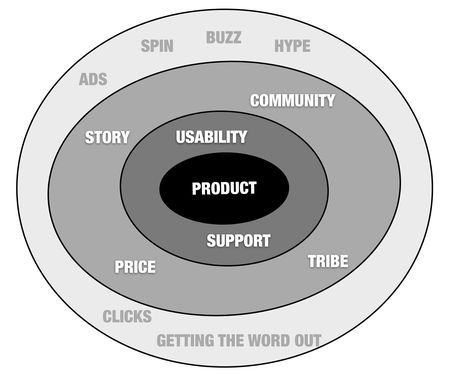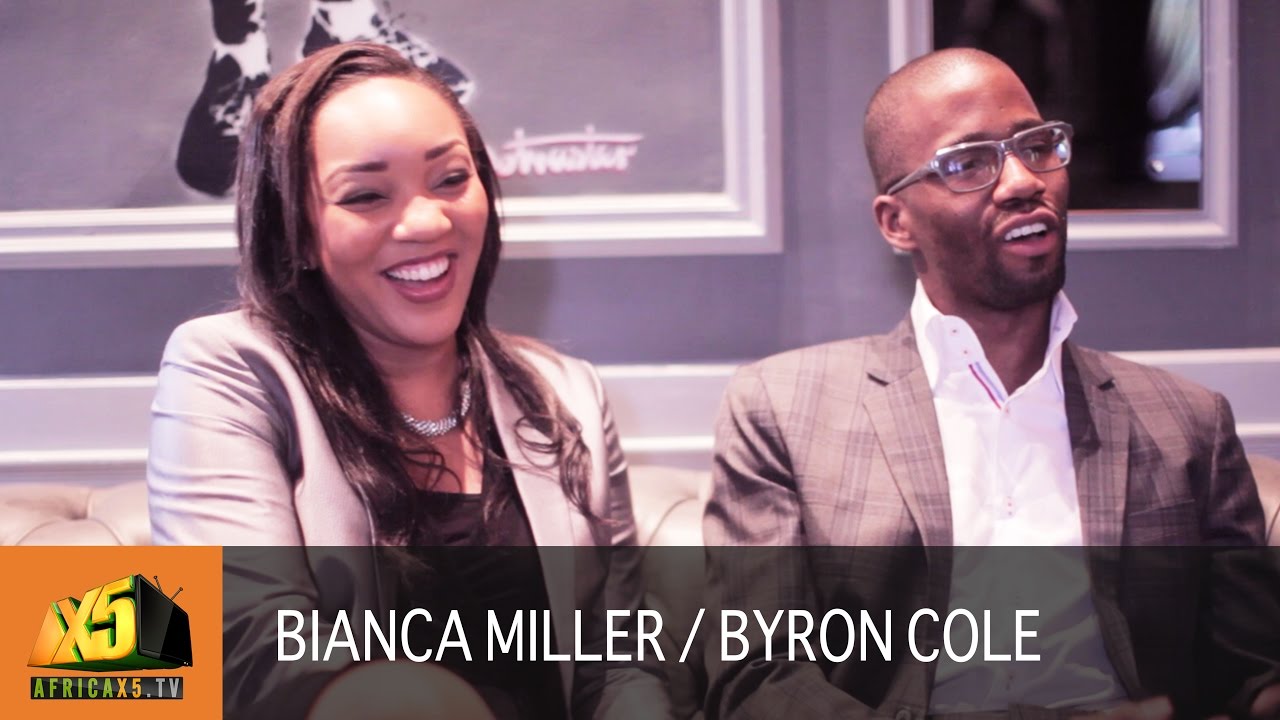20+ Valuable Marketing Quotes and Insights From Experts (1 of 2)
Curious to learn what the latest valuable marketing quotes and insights are?
Marketing never stops spinning and marketers never stop learning. To help you update your knowledge and show you new directions, I put together a list of 20+ marketing quotes and insights from 20 marketing experts.
This article includes insights and quotes from Ann Handley, Jay Baer, Chris Brogan, Rand Fishkin, Tara Hunt, Seth Godin, Mark Schaefer, Martin Lindstrom, Mari Smith and Gary Vaynerchuk.
20+ Valuable Marketing Quotes and Insights From Experts
1. Ann Handley – Go Smaller & Slay the Ignosaurus
We’ve all heard of the Go big or go home saying. Writer, speaker and digital marketing pioneer Ann Handley makes a 180 turn and goes in the opposite direction. She invites marketers to thing bigger, but go smaller. Why?
Small stories are specific. Small stories are human-scale.
Ann Handley
Making the story smaller and more specific is the best way for products, services or B2B solutions to break through the noise of social media and get listened to by their customers.
Big and bold stories are often best told in small and specific ways. Find the specific details—and use them to engage the heart, not just appeal to the head.
Ann Handley
But in order to be able to tell these stories, we need to slay the Ignosaurus, the beast that we thought had disappeared together with the other dinosaurs.
Ignosaurus is lazy, bored, and goes through the motions with no engagement on the job.
Ann says a vast majority of marketers today are Ignosaurus in disguise.

annhandley.com
She wants marketers to slay the Ignosaurus within and start experimenting, making changes.
In order for the industry to evolve marketers need to be curious and stay alert.
Study after study has shown that Marketing has one of the most pronounced skills gap of any industry. Many of us feel that we don’t have the skills we need to produce our best work.
Ann Handley
2. Jay Baer – Relevancy is a Value Exchange
Is your marketing failing?
Author, speaker and founder of Convince & Convert Consulting Jay Baer believes the reason your marketing is failing is the lack of relevancy.
Customers and prospects are trading their attention for your information. If they refuse to do so, it’s because your information does not matter to them enough sufficiently for them to trade attention for that information.
The key to being more relevant isn’t hard-it just takes time. The key to being more relevant is to understand your customers better.
The truth is that most modern marketers don’t actually interact with customers very much anymore, and that robs us of a really important success ingredient: insights.
Jay Baer
How do you get insights?
Not from reading spreadsheets or reports.
Jay says most marketers today have never seen their customers which is really sad.
How can you design marketing strategies and campaigns if you don’t know who are you talking to?
You need to change that today.

Leave the office and make contact. Spend time with your customer service and your sales team to learn what your customers’ problems are, what questions they ask, how they talk etc.
Almost no great marketing happens behind your desk. Great marketing occurs when you actually take the time to spend time with your customers and learn what they really need and what they’re really all about.
Jay Baer
3. Chris Brogan – Invite People to Your Picnic
I think even the biggest companies have to get a bit more “picnic-sized” in their looking at outreach, attraction, sales, and conversion. If you speak to everyone, you’re heard by no one. Sure, make your big ads say whatever they’re saying, but use your other resources to reach and engage with specific groups at a time.
Chris Brogan
How can a company reach people and serve those who would benefit from their services and products?
Speaker, author and marketing expert Chris Brogan says marketers need to make their customers feel seen and understood. Only then will they be ready to buy.
How do you make your customers feel seen and understood?

You need to split your customers into several communities of personas. Make groups for every community of people you think you can best serve. And then invite them to a picnic, online or offline and make them feel they belong. That’s how revenue is generated – by earning the attention and trust of all those people out there who feel invisible.
4. Rand Fishkin – The True Marketing Trends for 2019
Former founder of Moz and current founder of SparkToro Rand Fishkin believes marketing trends like video content, turning to the human side of marketing and data-driven creativity are completely non-actionable and can hardly be called trends for 2019.
Instead, he made a list of the trends he believes will have an impact on marketing in 2019.

Here they are:
- In the next few years, the US and other parts of the world will experience an economic recession which is already changing customers’ behaviour;
- The undue influence of big businesses and monopolies which resulted in bad news for citizens: GDPR, the loss of Net Neutrality, Articles 11 and 13;
- A recent analysis showed a dramatic slowdown in the global growth of internet access. To keep making the same revenue as in past years, most internet giants compete with publishers, limit organic reach, cannibalize clicks and make channels pay-to-play;
- Voice Answers have the potential to disrupt any competitive opportunity to appear in results and earn traffic and value;
- The emerging, broad societal belief that overuse of social networks and heavy web content consumption do more harm than good. Many people today are limiting their screen time and their children’s.
What steps is your company taking to adapt to the future?
5. Mark Schaefer – The Belonging Crisis
Author, speaker and marketing expert Mark Schaefer says
Most of our marketing is occurring without us because today the customers are the marketing department. The new challenge for a company is to be invited to those organic conversations.
We live in an era when hyper-empowered consumers control the brand narrative.
In the past, a “brand” is what we told our consumers. Today, a brand is what our customers are telling each other.
Mark believes there is a belonging crisis today in the world.

Here is what marketers should do to help companies overcome this trend according to Mark:
- Align with the values of your young customers, empowering their voices, and creating deep emotional attachments with customers that result in loyalty;
- Help your customers feel connected;
- Provide personal attention to your customers. “It’s not “personalized” — it’s personal!”
- Nurture like-minded customer “islands” on Facebook and other spaces;
- Use true personal connections instead of automated messages and spammy responses;
- Traditional ads that lead to “awareness, trial and loyalty” don’t work so well any more. Build a brand from a place of empathy and personal pain;
- Assemble a tribe, united in their belief in how the product or service connects them to their individual lives and to their communities.
6. Mari Smith – Use Stickers in your Facebook Video Ads
Often referred to as the Queen of Facebook, Mari Smith provides marketers with many valuable and useful insights on Facebook and Instagram marketing.
Stickers on videos can significantly improve the performance of your Facebook ads.
Mari Smith
Mari and her team performed a test to see how stickers influence the results of Facebook video ads.
Here’s what she found:
- Cost per result for ads with stickers was almost 33% lower;
- Both Conversion rate and CTR were higher;
- Stickers don’t impact interest in the ad copy so much as generate interest in the advertised product;
- If you are looking to use stickers in your Facebook video ads pay attention to the number of stickers you add, don’t overdo it!

7. Gary Vaynerchuk – The $1.80 Instagram Strategy
Gary Vaynerchuk spent the last 10 years of his career trying to understand user psychology and reverse engineer attention into an engaged community online.
The truth is, the way to win on social media is to actually be social. The number of Instagram followers you have means nothing if you can’t build a community of like-minded people who care and engage. The only real way to do this from scratch is to become part of the conversation.
Gary Vaynerchuk
That’s how he came up with the $1.80 Instagram strategy.
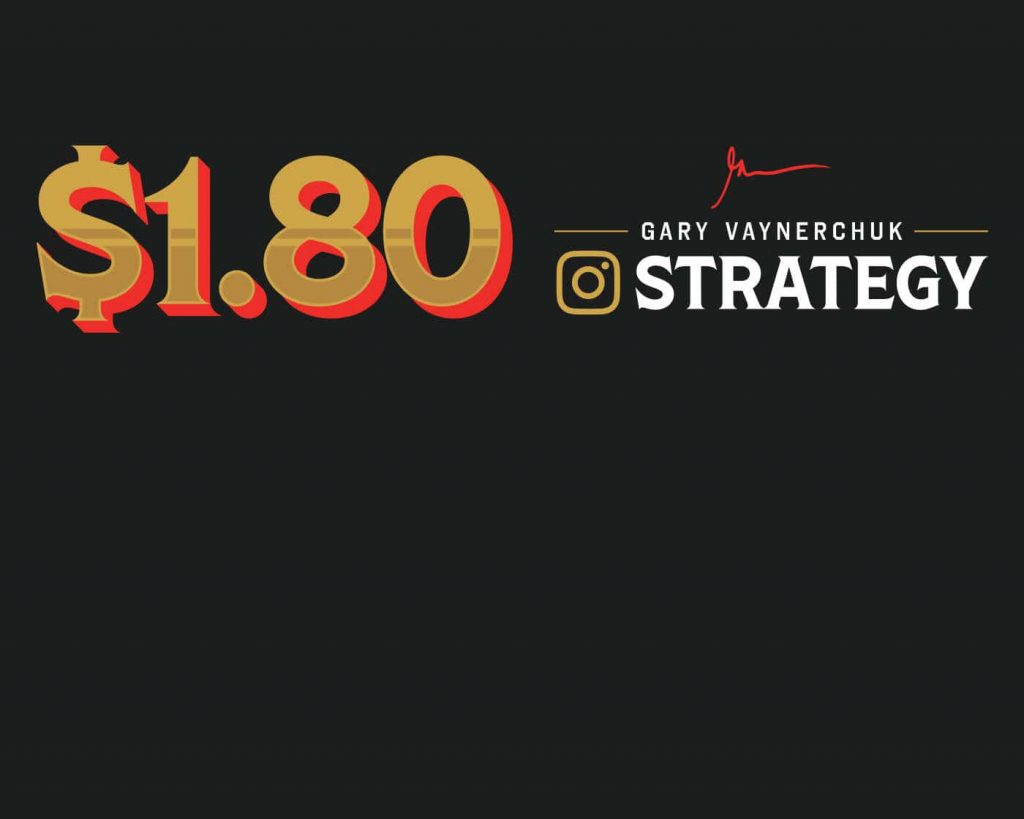
garyvaynerchuk.com
What is the $1.80 Instagram strategy?
It’s leaving your personal .02 cents on the top 9 trending Instagram posts for 10 different hashtags that are relevant to your brand or business every single day.
All you need to do is provide value where you can and it only takes 2 minutes a day. He says it’s exactly the strategy that always worked for him – becoming part of the community. The result is you will have meaningful connections, not bots. And this kind of connections is the most valuable.
8. Tara Hunt – No, that’s not marketing
Executive-level digital marketing professional Tara Hunt makes it clear on what marketing is not.
Contrary to popular believe, advertising isn’t the same as marketing. PR is not the same as marketing. Communications isn’t the same as marketing and Branding isn’t the same as marketing either. Even Sales is often completely separate from marketing. Brand and advertising and PR and content and digital and consumer insights and pricing and social and events and product and positioning and communications and a whole bunch of other stuff are all part of the marketing toolkit, but they aren’t “marketing.”
Tara Hunt
Videos, podcasts and content, in general, are great tactics for the right audience but they’re not marketing. They won’t automatically open the floodgates of customers.
Here’s what marketers should do according to Tara:
- Understand their market;
- Understand if they have the right product for that market (if not, let their client know they are focusing on the wrong market or need to change the product);
- Identify the right channels of distribution for both product and message;
- Put it all together in a measurable plan.
Anything less is not marketing.
9. Seth Godin – 10 words per page
Seth Godin is the only person to have been inducted in the Direct Marketing Hall of Fame and the Marketing Hall of Fame. His blog is one of the most successful blogs in the world with 7000 published articles and millions of readers.
We are also proud that Seth Godin was one of the keynote speakers at BRAND MINDS 2017.
Here are 4 insightful quotes:
Any metric you can buy your way out of is probably not a useful metric to measure yourself by.
![]()
Every interaction you have with a customer either strengthens your relationship (because it’s mutually beneficial) or weakens it. Weaken it enough time and you break it.
Ten words per page
That’s how many words get scanned the first time through. Perhaps five on a billboard.
Which means that your memo, your ad, your announcement, your post–you get ten words.
If you can begin with the ten words and write around them, you have the foundation for an effective message.
When in doubt, when your marketing isn’t working, the answer is easy: go one circle in.
seths.blog
10. Martin Lindstrom – Build Anticipation
Neuromarketing and branding expert Martin Lindstrom draws attention to the concept of anticipation.
Anticipation is the feeling of excitement about something that is going to happen in the near future. It is a powerful feeling and it is directly linked to connectedness and engagement over a longer period of time.

In our world of on-the-spot gratification, how are brands leveraging anticipation to keep their customers close and engaged? Technology has taken anticipation away.
From a rational point of view, anticipation is nothing more than an illusion, a myth, a chimaera; but from a subconscious, storytelling, and emotional point-of-view, anticipation makes all the difference. It is the bride’s months-long excitement as she chooses her gown, the anxious lead-up to graduation day, the indescribable feeling as the newborn baby finally arrives home and settles into its beautifully decorated bedroom.
Martin Lindstrom
If your brand offers experience, anticipation plays an important role in your customers’ perception of it. Anticipation has the power to make the wait much more rewarding and it makes all the difference. It sets your brand apart from your competitors and influences the bottom line.
Stay tuned for part 2!
Join the Conversation
We’d love to hear what you have to say.
Get in touch with us on Facebook Group and Twitter.
10 Marketing Blogs Every Successful Marketer Should Follow (1 of 2)
A successful marketer is a marketer who never stops learning. Apart from books, marketing blogs are the next best thing: marketing experts and trendsetters write down their ideas and insights in easy to read articles.
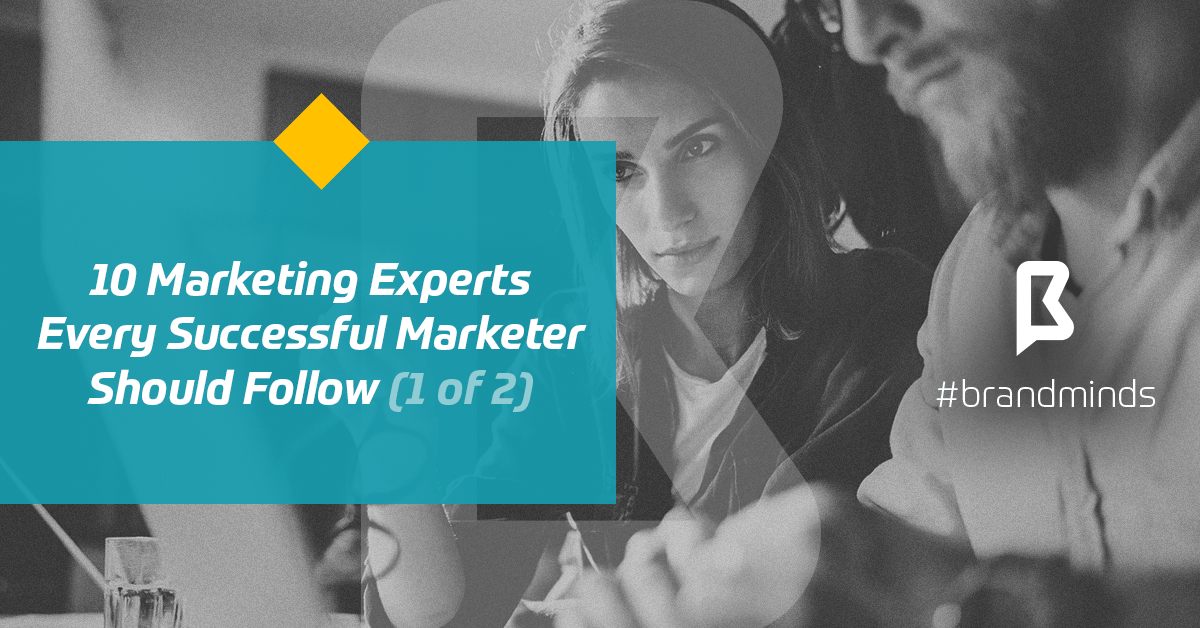
Here are 10 marketing blogs every successful marketer should follow:
1. Ann Handley’s Blog

Ann Handley / marketingprofs.com
Ann Handley is a writer, a speaker, a digital marketing pioneer and Wall Street Journal best-selling author.
She is the world’s first Chief Content Officer, heading up all professional education and training content at MarketingProfs. In her professional capacity, she leads companies internationally to rethink the way they market to achieve lasting business success.
She is also a LinkedIn Influencer.
On her blog, she writes about how businesses can escape marketing mediocrity to achieve tangible results: the link between empathy and marketing, why marketers and brands should take it slow, how marketers should challenge marketing assumptions etc.
Even when you are marketing to your entire audience or customer base, you are still simply speaking to a single human at any given time.
Ann Handley
2. Jay Baer’s Blog

Jay Baer / seoforgrowth.com
Jay Baer is the founder of Convince & Convert Consulting, a digital marketing and customer experience advisory firm that helps companies (like The United Nations, 3M, Oracle, Cisco, Nike, Hilton, Caterpillar) gain and keep more customers. During his 25-years of experience as a digital marketer, Jay has written six books.
In his latest book, Talk Triggers: The Complete Guide to Creating Customers w/ Word of Mouth, Jay talks about how brands should create and use the word-of-mouth strategy to influence purchases.
On his blog, Jay writes about innovative ways for marketers to get more customers and improve their experience, how to upgrade their content marketing, how to manage a social media crisis etc.
Branding is the art of aligning what you want people to think about your company with what people actually do think about your company. And vice-versa.
Jay Baer
3. Chris Brogan’ Blog

Chris Brogan / chrisbrogan.com
For the past ten years, Chris Brogan has been working with big companies like Google, Disney, Twitter and IBM to help them improve their content marketing and digital media efforts to acquire and/or retain customers (either B2B or B2C).
He is a speaker and co-author of Trust Agents: Using the Web to Build Influence, Improve Reputation, and Earn Trust (2009), a New York Times bestseller.
On his blog, he writes about subjects like how to be more effective with LinkedIn, what customers expect from brands, content marketing, how brands should make their customers feel smart etc.
The key is, no matter what story you tell, make your buyer the hero.
Chris Brogan
4. Rand Fishkin – Rand’s Blog

Rand Fishkin@Twitter
Rand Fishkin is the co-founder of Moz.org and Inbound.org.
In February 2018, Rand left Moz and began a new adventure: SparkToro, a technology platform in the influencer and audience intelligence marketing space.
Speaker and author of Lost and Founder, Rand shares on the company’s blog valuable insights on influencer marketing, the future of SEO, marketing fit etc.
Tell a story. Make it true. Make it compelling. And make it relevant.
Rand Fishkin
5. Andy Crestodina – Orbit Media Studios Blog

Andy Crestodina@Twitter
Andy Crestodina is the co-founder and Chief Marketing Officer of Orbit Media Studios.
He is a fervent advocate for content marketing and ethical digital marketing with 19 years of experience in the trenches.
He is a top-rated speaker and a marketing teacher.
In 2015, Andy was named one of Forbes Top 10 Online Marketing Experts to Watch and in 2016 Entrepreneur Magazine named him one of 2016’s Top 50 Marketing Influencers.
He is the author of Content Chemistry: The Illustrated Handbook for Content Marketing.
On the Orbit Media Blog, Andy shares his insights on how to improve email marketing engagement, e-commerce marketing tips, how to launch a social media advocacy program etc.
“Data-Driven Empathy.” That’s the idea I want people to understand. Marketing has always been about empathy, but digital marketing is about using data to make better decisions that align with our audience’s needs.
Andy Crestodina
Join the Conversation
We’d love to hear what you have to say.
Get in touch with us on Facebook Group and Twitter.
20 Must Read Books For Entrepreneurs in 2018 – Part I
In 2017 17 per cent more people searched “how to start a business” online compared to 2016, according to audience insights tool Hitwise, wrote The Independent.
We selected some of the best books we believe will help you on your journey as entrepreneurs:
1.Self Made: The Definitive Guide to Business Start-Up Success by Bianca Miller-Cole and Byron Cole
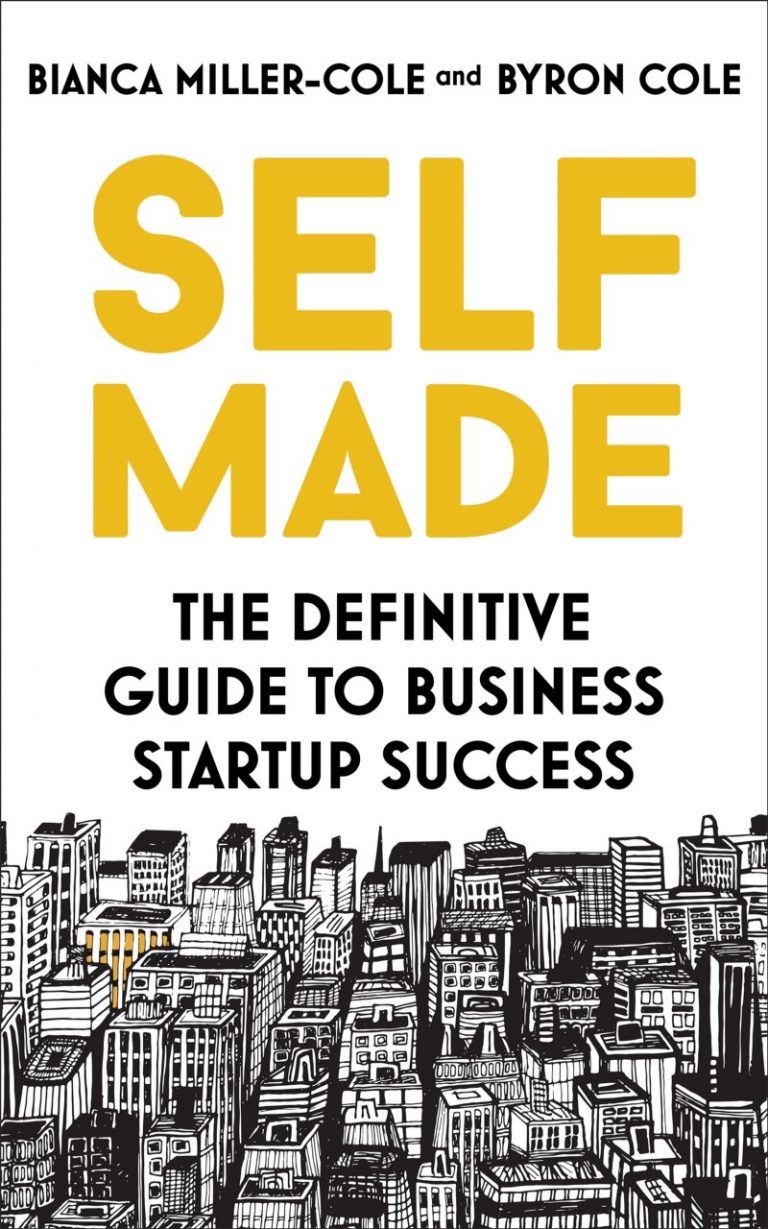
2. Good to Great: Why Some Companies Make the Leap and Others Don’t by Jim Collins
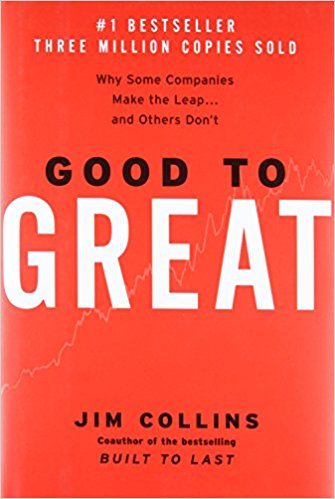
The findings of the book include:
- Level 5 Leaders: The research team was shocked to discover the type of leadership required to achieve greatness.
- The Hedgehog Concept: (Simplicity within the Three Circles): To go from good to great requires transcending the curse of competence.
- A Culture of Discipline: When you combine a culture of discipline with an ethic of entrepreneurship, you get the magical alchemy of great results. Technology Accelerators: Good-to-great companies think differently about the role of technology.
- The Flywheel and the Doom Loop: Those who launch radical change programs and wrenching restructurings will almost certainly fail to make the leap.
3. Built to Last: Successful Habits of Visionary Companies (Harper Business Essentials) by Jim Collins
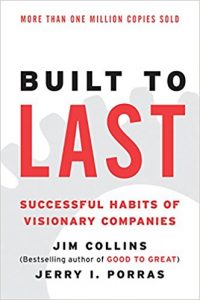
Filled with hundreds of specific examples and organized into a coherent framework of practical concepts that can be applied by managers and entrepreneurs at all levels, Built to Last provides a master blueprint for building organizations that will prosper long into the 21st century and beyond.
4. Anything You Want: 40 Lessons for a New Kind of Entrepreneur by Derek Sivers
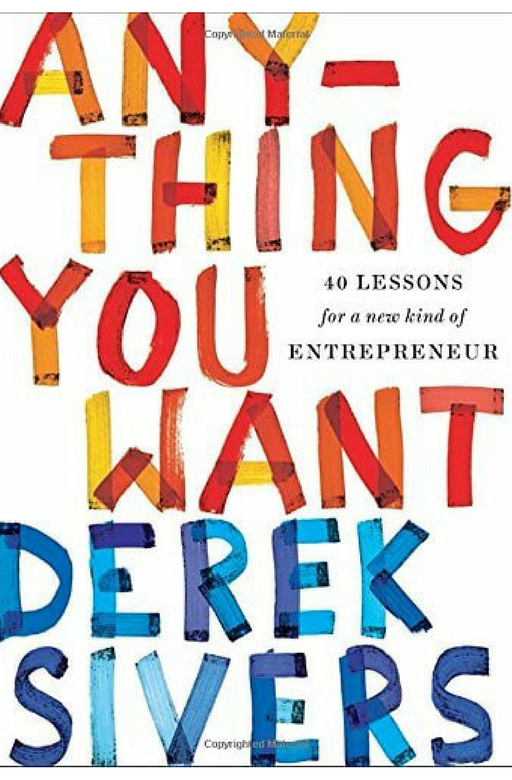
The writer let’s you in on everything he learned from starting, growing, and selling CD Baby, compressed into an entertaining and useful one-hour read. No secrets held back, I share the biggest mistakes, keys to its success, and the philosophies behind the big decisions. It’s 10 years of experience in one hour, designed to be immediately usable for your own business or project.
5. The New Business Road Test: What Entrepreneurs and Investors Should Do Before Launching by John Mullins
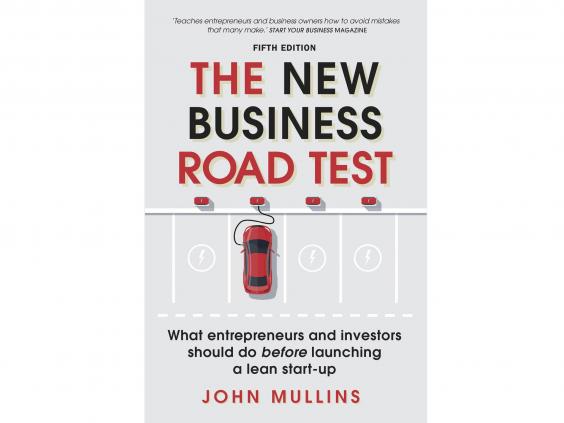
The New Business Road Test is the essential handbook for anyone wanting to launch a start-up. The new and fully updated case studies – Ella’s Kitchen, Whole Foods, eBay and more – and ‘seven domains’ framework will help you avoid impending disaster and enhance your chances of achieving your entrepreneurial dreams. “If you are looking to take a good look at whether your business idea will succeed or not then this is a useful, interesting and smart book to read. He also works hard on giving you the tools to assess if your idea has value or not, BEFORE you launch a lean startup, which makes this a useful addition to your library before you reach the Erik Ries stage,” wrote irishtechnews.ie.
6. The First 90 Days: Proven Strategies for Getting Up to Speed Faster and Smarter by Michael D. Watkins
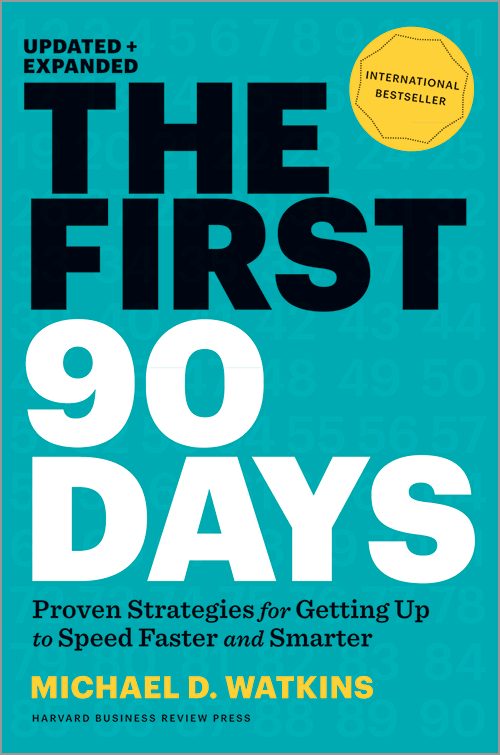
In this updated and expanded version of the international bestseller “The First 90 Days,” Michael D. Watkins offers proven strategies for conquering the challenges of transitions–no matter where you are in your career. According to hbr.org, Watkins, a noted expert on leadership transitions and adviser to senior leaders in all types of organizations, also addresses today’s increasingly demanding professional landscape, where managers face not only more frequent transitions but also steeper expectations once they step into their new jobs. By walking you through every aspect of the transition scenario, Watkins identifies the most common pitfalls new leaders encounter and provides the tools and strategies you need to avoid them. “You’ll learn how to secure critical early wins, an important first step in establishing yourself in your new role. Each chapter also includes checklists, practical tools, and self-assessments to help you assimilate key lessons and apply them to your own situation”.
7. Lost and Founder: A Painfully Honest Field Guide to the Startup World by Rand Fishkin
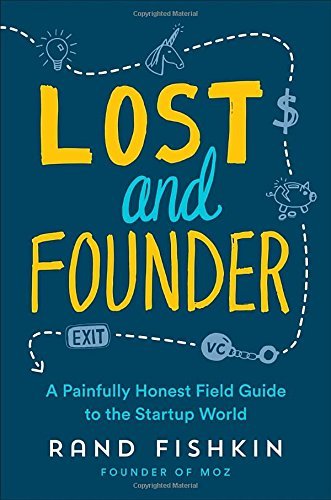
“Most people don’t want to talk about those startup stories, but the truth is, they’re a lot more common than the Zuckerberg-esque tales of success we so often hear about. Fishkin pulls back the curtain on tech startup mythology, exposing the ups and downs of startup life and sharing his hard-won lessons with you. No matter what business environment you’re in – whether it’s a struggling startup or a mature business, this book can help solve your problems. Or, at the very least, it’ll make you feel less alone for having them,” wrote sparktoro.com.
8. Made to Stick: Why Some Ideas Survive and Others Die by Chip Heath and Dan Heath
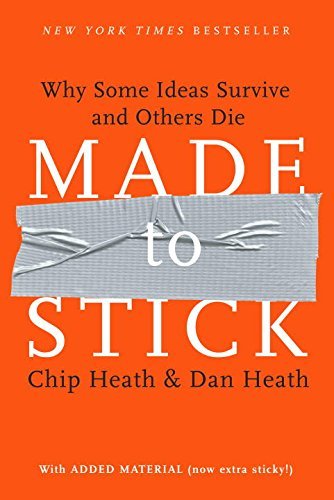
Since its release in 2007, Made to Stick has become popular with managers, marketers, teachers, ministers, entrepreneurs, and others who want to make their ideas stick. It’s been translated into Arabic, Bulgarian, Croatian, Dutch, and 25 other languages. Made to Stick made the New York Times and Wall Street Journal bestseller lists and was retired from the BusinessWeek list after a 24-month run. It was named to several “best of the year” lists and was selected as one of the best 100 business books of all time.
9. Recipe for Success: The Ingredients of a Profitable Food Business by Karen Green
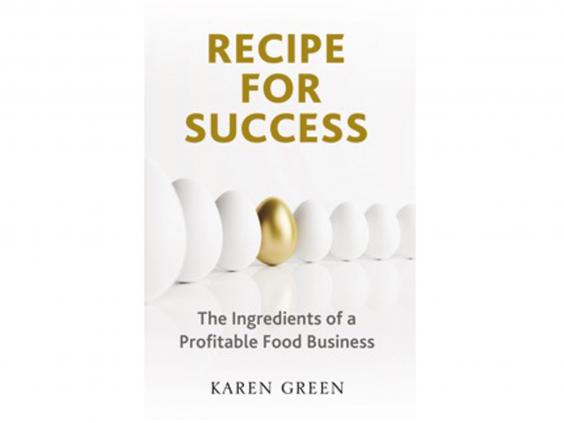
Karen Green, former UK retail buyer and commercial director for several successful food businesses, shares her stories, advice and exercises to guide readers through the maze of creating a profitable and growing food manufacturing business. Recipe for Success provides a step-by-step guide that enables readers to create high profile food brands and a business that can make and sell these products successfully. The book assists readers to analyse their business and where the opportunities for growth and improvement lie. It also helps readers to design profitable products that will underpin their brand and sell successfully into retailers.
10. Radical Candor: How to Get What You Want By Saying What You Mean by Kim Scott
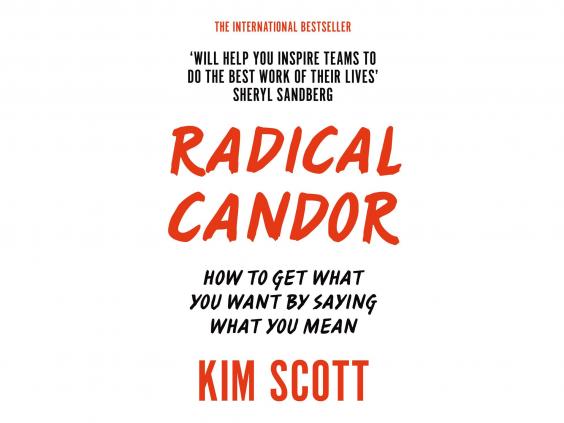
“Good communication is a vital skill any entrepreneur needs but what if you’re not confident dealing with the hiring and firing that comes with employing your own staff? Former Google and Apple executive Kim Scott draws on her years of experience in Silicon Valley to provide a guide to “radical candour” – in other words, how to be clear and firm with your employees without falling into false praise or aggression,” wrote The Independent.
